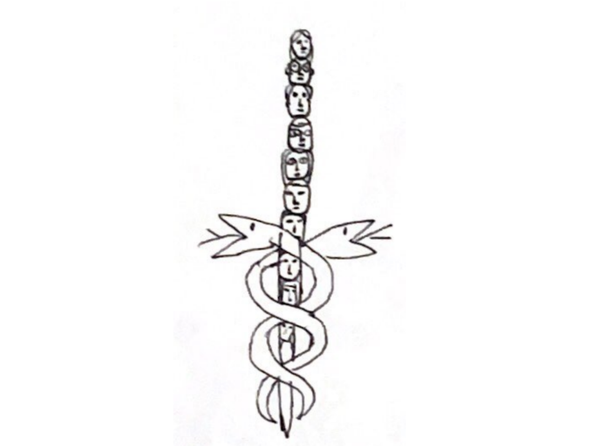No death panels, no taking ventilators away from sick seniors, no devaluing disabled babies’ lives: A new anti-discrimination rule is a powerful new tool for the pro-life movement. Drafted by the Trump and Biden administrations, this bipartisan success can help protect human life from involuntary euthanasia.
July 8 was the effective date for a final rule enacted by the Department of Health and Human Services. It is the biggest overhaul of disability-discrimination protections since the federal Rehabilitation Act was passed more than 50 years ago. The new rule forbids discrimination in medical treatment based on disability. Treatment can no longer be denied or limited based on judgments that disabled people will burden others or that their lives are worth less than those of people without disabilities. In other words, medical elites—whether government bureaucrats or hospital “ethics committees”—will no longer have the final say over whether someone’s life is worth living.
Why is this rule needed? Deadly discrimination threatens Americans with disabilities. This threat begins early in life. One pediatrician wrote in support of the new rule because a “mother cried in my office recounting how doctors encouraged ‘pulling the plug’ in the NICU and told her that her baby would have a bad quality of life.” The mother answered: “I am giving my baby a good life full of love.” The new rule protects parents’ right to fight for their kids’ lives.
The new rule also protects access to care for older Americans. During the pandemic, Washington state tried to prioritize care for young, healthy patients—which would have left seniors and people with disabilities to die. Kansas and New York even authorized people with chronic health conditions to lose ventilator access. Disabled people were reportedly pressured into signing do-not-resuscitate orders. Then-President Donald Trump’s HHS came to the rescue, lodging complaints against 10 states. The new rule confirms the principle that “disability should not form the basis for decisions regarding the allocation of scarce treatment for a separate medical condition or symptom.”
The new rule protects against involuntary euthanasia, too. Consider a recent, disturbing example from Canada. Cpl. Christine Gauthier is a veteran and former Paralympian. She applied for public funding for a home wheelchair lift. When she expressed frustration about a four-year delay, a bureaucrat allegedly responded that she could instead be euthanized. Canada admitted that a Veterans Affairs employee raised publivly funded suicide with veterans who reached out seeking government help. Some government employees apparently think disabled peoples’ lives are too worthless to even bother helping them get around their own houses. Is it any wonder disabled patients are pushed toward death in health-care settings, where costs can be so much higher?
Concerns about deadly discrimination aren’t new. In 2009, Sarah Palin warned that the Affordable Care Act could lead to elites deciding who lives and who dies: “The America I know and love is not one in which my parents or my baby with Down Syndrome will have to stand in front of Obama’s ‘death panel’ so his bureaucrats can decide [whether they live or die], based on a subjective judgment of their ‘level of productivity in society.’” Then-President Barack Obama immediately protested that the act would not, in fact, let the government “go around pulling the plug on grandma,” and the act’s text ultimately included some protections against rationing.
“It will instead require every hospital to respect disabled patients’ lives.”
The new rule expands protections to cover any federally supported medical treatment. In an interview for this essay, longtime pro-life advocate Burke Balch called the new rule “a dramatic step forward,” telling me that it will require every hospital to respect disabled patients’ lives.
Remarkably, the new rule is a bipartisan success—first proposed under the Trump administration, it has survived under President Biden and is now final. The Republicans who fought for disabled patients’ rights during Covid and the Democrats who assured that they would not enact death panels have found common ground.
Pro-choice activists have long accused pro-lifers of caring only about unborn children and not about all human life. This criticism has only grown louder since the Supreme Court’s 2022 decision in the Dobbs case returning the issue of abortion to the states. Pro-lifers have responded that their worldview and work extend beyond the abortion context. The new disability-discrimination rule gives them a chance to show it. They can insist that the second Trump administration commit to keeping the rule in place—and enforcing it. They can also go to court armed with the new rule, encouraging judges to set precedent that others can rely on to fight deadly discrimination. And finally, pro-lifers can help to make Americans aware of their rights by talking about the rule. Even amid various setbacks for the cause, this new rule represents a golden opportunity.
